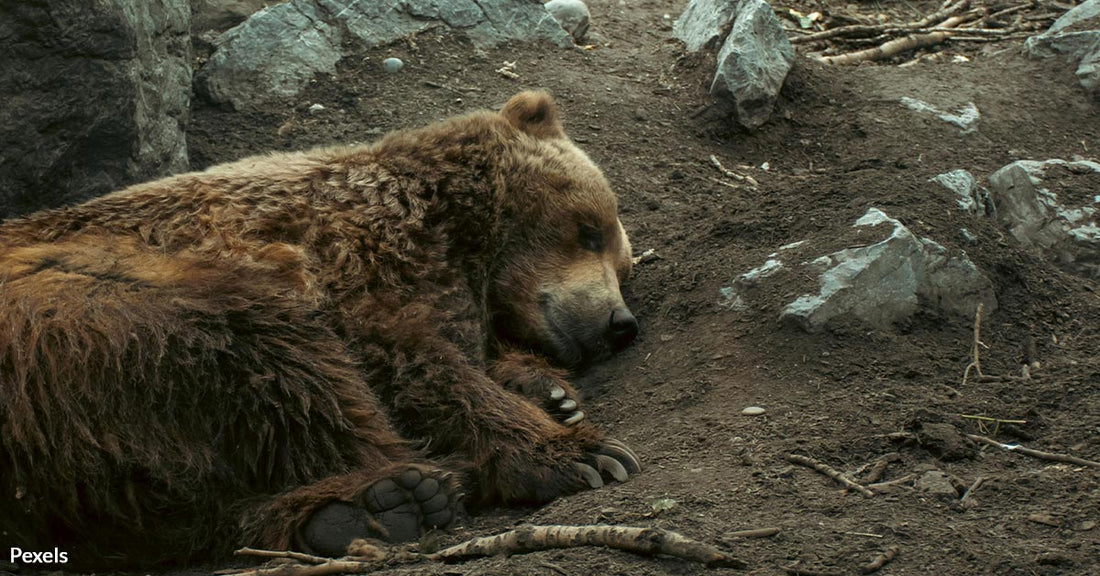Alaska's Wildlife Under Threat as Hunters Target Sleeping Bears and Cubs
Matthew Russell
In Alaska, hunting practices targeting hibernating bears remain legal, raising significant ethical and ecological concerns.
Despite some restrictions, hunters can still pursue bears in their dens, a practice that threatens the species' survival and undermines conservation efforts.

Legal Loopholes Allow Inhumane Practices
The U.S. National Park Service recently banned the use of bait like donuts and dog food to lure and kill bears on Alaska’s national preserves. This decision marks a step toward humane wildlife management but falls short of banning other cruel practices, such as killing hibernating bears in their dens. The omission has left conservationists and animal rights advocates concerned about the ongoing threat to bear populations, as reported by the Humane Society.
In 2017, Congress passed a resolution rolling back Obama-era regulations that prohibited hunting hibernating bears and their cubs. This legal change, signed into law by President Trump, allows hunters to target bears during their most vulnerable time. The legislation also permits the hunting of wolves and their pups in dens, further eroding protections for Alaska's iconic wildlife, HuffPost reports.

Ethical Concerns and Public Outcry
The practice of hunting hibernating bears is controversial, drawing criticism from wildlife experts and the general public. Many argue that such actions violate the principles of fair chase, a code of ethics that emphasizes sportsmanship and the fair pursuit of game.
The Humane Society Legislative Fund and other animal welfare organizations have condemned these hunting methods, calling them inhumane and unnecessary. William Ripple, an ecologist at Oregon State University, expressed his disapproval, stating, “Allowing the killing of bear cubs and wolf pups is appalling and goes against a basic convention of good hunting—the fair chase.”
This sentiment resonates with many Alaskans who value ethical hunting practices. Surveys show that a significant majority of Alaskans oppose these methods, highlighting a disconnect between state and federal policies and public opinion, according to National Geographic.

Ecological Impact and Conservation Concerns
Hunting hibernating bears can have profound ecological impacts. Bears are keystone species, playing a critical role in maintaining the balance of ecosystems. They help control herbivore populations and distribute seeds through their diet. Removing large predators like bears can disrupt these natural processes, leading to unforeseen consequences for other wildlife and plant species.
The state's Intensive Management Law, enacted in 1994, aims to reduce predator numbers to increase populations of prey species like moose and caribou. However, the effectiveness of this approach is questionable. Studies suggest that predator control often fails to yield significant increases in prey populations and may lead to ecological imbalances, the Washington Post reports.
The National Park Service’s decision to align federal regulations with state policies undermines its mission to preserve wildlife for future generations. Critics argue that these actions prioritize short-term hunting interests over long-term conservation goals. The concern extends beyond Alaska, as similar policies could potentially be applied to other federal lands across the United States, threatening diverse ecosystems and species, according to the National Parks Conservation Association.

The Way Forward
To protect Alaska's wildlife, stricter regulations and enforcement are necessary. Banning all forms of hunting hibernating bears and their cubs would be a significant step toward ethical wildlife management. Additionally, a more comprehensive approach to conservation, one that considers the ecological roles of predators, is crucial for maintaining the health of ecosystems.
The practice of hunting hibernating bears in Alaska poses serious ethical and ecological risks. While some progress has been made in banning baiting, more robust protections are needed to safeguard these species and their habitats. The broader implications of these practices highlight the need for a national conversation about wildlife management and conservation.
Click below to take action for wildlife in Alaska!

